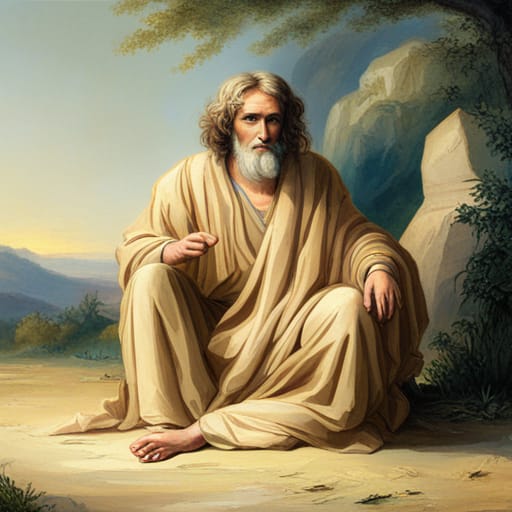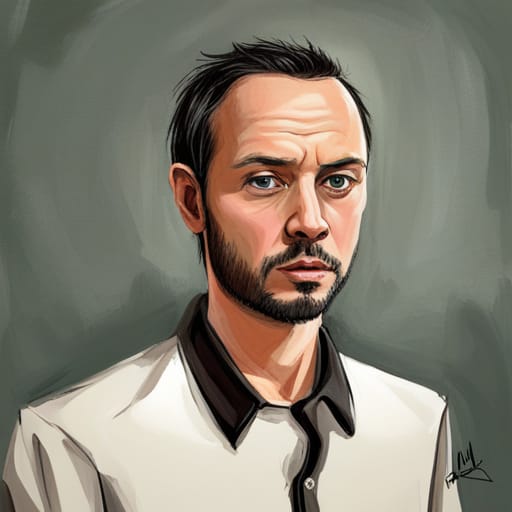If you’re looking for a philosophy definition in simple terms, that’s the best way to think of it: philosophy is the love of wisdom. But it’s also so much more than that. Philosophy is a way of life, thinking, and questioning everything around us. So if you’re ready to start your journey into philosophy, there’s no better place to start than with the big questions.
Introduction To Philosophy
Philosophical research seeks an understanding of what we do. When we talk about a great philosopher, we must name 25. These people questioned what was going on around them in their world.
This article will examine the most famous philosophers, plus the following:
- Provide a simple intro to philosophy
- A basic breakdown of philosophy categories
- A brief history and the importance of philosophy
A significant influence on the history
Another important aspect of philosophy is its history – studying past philosophers and their ideas. This can help us understand the development of different schools of thought and how those have influenced contemporary philosophers before them. Philosophy is a fascinating subject that can offer us new ways of thinking about the world and its place.
Type Of Philosopher
There are many different branches of philosophy, each with its focus and area of expertise. If you’re interested in learning more about philosophy, plenty of resources are available – from books and articles to online courses and podcasts. Whatever your level of interest, there’s sure to be something that will suit you. So why not start exploring today?
Contemporary philosophy
Some common themes in contemporary philosophy include ethics, epistemology, and metaphysics. Ethics, for example, is concerned with questions about what is right or wrong and how we should live our lives.
Epistemology is concerned with questions about knowledge and justification, while metaphysics is concerned with questions about the nature of reality. These are just a few examples – philosophy is a vast and complex field, and many other essential topics could be mentioned.
Traditional philosophy
Traditional philosophy is defined as studying the fundamental nature of reality, including the nature of existence, being, and truth. It is also concerned with the spirit of knowledge and how we can know things about the world. This philosophical concept has its roots in the work of ancient Greek philosophers, such as Socrates, Plato, and Aristotle.
Western thought
Western philosophy is not just about asking questions but also about finding answers to these questions. It is a process of figuring out what is accurate and what is not. This involves looking at evidence and arguments and then judging what is true. This process is called reasoning.
Reasoning
The reasoning is an integral part of traditional philosophy and is the process of using your mind to figure out something. Reasoning is different from just thinking about something. When you reason, you are trying to find a conclusion based on evidence and arguments, and you are not just randomly guessing or making things up.
Ancient Greek Philosophers
Ancient Greece gave us Socrates, Plato, and Aristotle, and they were among the best-known Greek philosophers. Socrates was a renowned educator for presenting thought-provoking answers and teaching methods to students and the world of philosophy.
Aristotle
Plato has many students who follow. But Aristotle is Plato’s best-known student. This Greek philosopher gave lectures on Classics. Aristotle established the “Lyceum,” the Peripatetic school for philosophical philosophy. Aristotle wrote extensively and became one of the most famous philosophers in history. Aristotle’s ideas about physics and biology were ahead of their time, and he is still considered one of the great thinkers in these fields.
He also contributed significantly to logic, metaphysics, ethics, and politics. One of his most famous works is Nicomachean Ethics, in which he discusses his ideas about the good life and happiness. Today, Aristotle is one of the first students of formal logic.
Socrates
The great Greek philosopher, Socrates.
Socrates was one of the most influential thinkers of his time. He is best known for his Socratic Method, a method of inquiry and discussion still used in philosophy and other disciplines today. Socrates believed that proper knowledge comes from understanding universal truths. He also firmly believed in ethics as a moral philosopher and argued that it is better to suffer an injustice than to commit one.
Socrates is considered the founder of Western philosophy in America.
Plato
Next on our list is Plato, another great Greek philosopher. Plato was a student of Socrates, and he founded the Academy in Athens, one of the first institutions of higher learning in the Western world. Plato’s most famous work is The Republic, in which he outlines his ideas about justice, morality, and the ideal society.
Plato believed there should be three classes of people in society: the workers, the soldiers, and the rulers. He also believed in the soul’s immortality and that we are all born with the knowledge of the Forms, which are perfect versions of things in the world. He remains an important figure in ancient Greece’s philosophy and Western philosophy.
Famous German Philosopher
Immanuel Kant
Born in 1724, Kant was a German philosopher and an integral figure in the Enlightenment period. His research has included metaphyses, ethics, aesthetics, and epistemological issues. Kant claimed time and space constituted only intuition, and it combines all experiences. The thing that exists for the experiences of others, but they do not include objects of knowledge. Kant attributed rationality to morality, saying aesthetics relates to disinterest in judgment. In the past, Kant played significant roles in philosophical topics, believing that we could achieve perpetual peace through universal democracy and values.
Guiding principles
Kant is one of the most influential thinkers of the enlightenment, and most of his writings are about how people learn. Kant argues that we only know what is possible. The second point is that we can understand our environment but cannot answer the most fundamental questions in metaphysics.
Martin Heidegger
Martin Heidegger is another well-known philosopher. Heidegger was a German thinker considered one of the most influential philosophers of the 20th century. Heidegger’s most famous work is Being and Time, in which he discusses his ideas about the nature of being. Heidegger believed that humans should try to live authentically to their core.
Friedrich Wilhelm Nietzsche
Nietzsche is a highly controversial philosopher, and it is because some people misinterpreted his ideas. His writings cover philosophical polemics, cultural criticism, and fiction. Friedrich authored influential concepts in his own words, including the Übermensch philosophy of eternal return.
However, his Übermensch is still arguably his most controversial work. His sisters Elisabeth began working as a curator of his manuscripts, and he edited her writing to match her German ultranationalist philosophy.
French Philosophers
Rene Descartes
Born around 1696, Rene was a french philosopher, anthropologist, and researcher. During his entire life, he worked in the Netherlands. Several pieces from his life originate from late Aristotelian and revivalist Stoicism from 1620, and Descartes ruled that human material must be categorized into matter or forms.
The famous French philosopher is best known for his philosophical work, Meditations on First Philosophy, where he argues that the only thing that can be known for sure is that he exists.
He is also credited with being the father of modern philosophy, and his work has influenced many famous philosophers that came after him.
Jean-Jacques Rousseau
Jean-Jacques Rousseau is another famous philosopher. Rousseau was a French thinker who significantly impacted the development of modern political thought.
Rousseau’s most famous work is The Social Contract, in which he discusses his ideas about the relationship between the individual and society. Rousseau believed that humans are born free but soon corrupted by society.
He also argued that government should be based on the people’s general will, not on the will of any one person or group of people.
Voltaire (1694–1778)
Francois Arouète, best known by his nickname “Voltaire,” is considered one of the most influential French philosophers of the Renaissance. He wrote several letters and plays, mostly centered on religious and political matters. One of his most recognizable pieces has been Candide. This satirical novel makes fun of philosophical optimism that proclaims every catastrophe and human suffering is a benevolent cosmic plan.
Pascal (1623–1662)
Blaise Pascal is one of the twentieth century’s most important French mathematicians, physicists, and religious philosophers. He laid the basis for the modern theory of probability.
20th-century Philosophers
When people think of widely regarded political philosophers, they aren’t thinking of the modern world. However, some of the most influential and widely regarded philosophical investigations are from the 20th century. The following played the role of key figures and tackled some of the biggest questions of the modern era surrounding human nature, moral philosophy, political theory, and more.
Here are just a few of the American philosophers who made a lasting impact:
John Rawls
His 1971 book “A Theory of Justice” is still one of the most important works in political philosophy. In it, Rawls argues that society should be structured to benefit everyone equally, regardless of their position in society.
Judith Butler
A leading thinker in gender studies, Butler’s work has challenged traditional ideas about being a man or woman. She is best known for her 1990 book “Gender Trouble,” which has hugely influenced feminist theory.
Noam Chomsky
One of the most important linguists of the 20th century, Chomsky is also well-known for his political activism. He has written extensively on war, media, and globalization and is one of the most vocal critics of U.S. foreign policy.
Political Philosophers
Many political philosophies have shaped the way countries are run. One of the major philosophers was the Chinese philosopher Laozi.
Laozi
He founded the philosophical school of thought known as Taoism. Taoism advocates for a simple and natural lifestyle, something in harmony with the Tao. The political philosophy of Taoism has been influential in China and East Asia for centuries.
Confucius (551-479 B.C.)
Confucius was a Chinese philosopher who lived in the sixth century BCE. He is one of the most influential philosophers in history, and his ideas have shaped Chinese thought for centuries. Confucius believed in the “Golden Rule,” which stated that one should treat others as they want to be treated. Confucius is, also known as Kong Qua and Kung Fu Tzu, a renowned philosopher and political figure of China and is regarded as an important father of eastern thinking. His teaching focused on building ethical, social relations, and education standards and promoting justice and honest behavior.
Analytic Philosophers
This school of philosophy explores the nature of philosophical inquiry and the logical techniques used in analyzing philosophical ideas.
Many philosophers could lay claim to the invention of analytical philosophy. However, some of the most notable thinkers in this area include Bertrand Russell, Gottlob Frege, and Ludwig Wittgenstein. These philosophers were integral to developing analytical philosophy, and each made significant contributions to the field.
Bertrand Russell
Bertrand Russell is often credited with being one of the founders of analytical philosophy, owing to his work in logic and mathematics. Russell’s logical work helped formalize many of the central concepts of analytic philosophy, such as deduction and inference. His work on set theory also laid the foundation for much of modern mathematics.
Gottlob Frege
Gottlob Frege is another crucial figure in the history of analytical philosophy. Frege was principally responsible for developing a new approach to logical reasoning known as “predicate calculus.” This system of thought proved to be highly influential in subsequent philosophical movements, such as logical positivism.
Ludwig Wittgenstein
Finally, Ludwig Wittgenstein is often considered the father of analytical philosophy. Wittgenstein’s work helped clarify many of the central concepts of this field, such as meaning and reference. Additionally, his work on the nature of language profoundly impacted 20th-century philosophy. Overall, these three philosophers played a crucial role in developing analytical philosophy.
More Great Philosophers
Karl Marx
The Marxist revolutionaries of modern times have ultimately impacted the entire human race through their genesis Das Kapital. His undergraduate studies included philosophy and law. Born in Germany, he was exiled from London. He worked in collaboration with Friedrich Engel and published “Das Kapital.” Marx was the author of the 1848 Communist manifesto. He was an economist who developed the theory of social and economic life and helped form the foundation of socialism and communism. He called Marxism today. In Marxist theory, human society is a product of conflict between classes.
Thomas Aquinas
One philosopher who is mainly associated with the Catholic Church is Thomas Aquinas. He was a Dominican priest and one of the most important medieval thinkers. He tried to synthesize the thought of Aristotle and Christianity, and his work is still studied today. Aquinas is best known for his work on natural law, which he saw as a way to discern what is good and evil. He believed in a hierarchy in the universe, with God at the top, followed by angels, humans, animals, and plants. This hierarchy meant that humans had a special place in the universe and were responsible for taking care of it.
Aquinas also wrote about the nature of knowledge and how we come to know things. He believed that there are two types of knowledge: intuitive and demonstrative. Intuitive knowledge is something we know immediately, without thinking about it or reasoning it out. Demonstrative knowledge is something we learn through reasoning or argument.
Aquinas’s work was very influential in developing Catholic thought, and he is still studied by philosophers today.
Niccolo Machiavelli
Nicco was a Renaissance diplomat, philosopher, and novelist from Italy. Several famous works are mentioned in The Princess’s book, and he wrote other pieces too. Today, some believe Machiavelli is the father of modern political thought. Most of those who read his famous quote are taking it for granted, and it is a more profound concept that must be studied for complete comprehension. Machiavelli viewed political fights and their aftermath as board games with definite rules.
Søren Kierkegaard
Søren Kierkegaard is another important philosopher. Kierkegaard was a Danish thinker considered one of the founders of existentialism. Kierkegaard’s most famous work is Either/Or, in which he discusses his idea that life is a choice between two options: living in an eternal present or living for an ideal future. Kierkegaard believed that humans must choose to live for an ideal future to find meaning in life.
David Hume
David Hume is another widely regarded philosopher. Hume was a Scottish thinker who made significant contributions to epistemology and logic. He is best known for his skeptical view of human knowledge. Hume believed that we could not know things with certainty, but we can only have probabilities. He also argued that causality is not based on reason but on custom and habit.
Dante (1265–1321)
Dante was an Italian medieval author and religious explorer considered the founder of modern Italian literature. His most outstanding achievement has become his poetry trilogy, The Divine Comedy. The trilogy contained chapters representing three levels of Christ’s afterlife: heaven and hell. The poems are full of learnings, analysis of current challenges, and creative use of language and image as the story’s main elements.
John Locke (1632-1704)
Locke, an English philosopher and enlightenment thinker, was formally known as the Father of Classical Liberalism. Throughout a lifetime of research and work, he contributed significantly to current theories about an unrestrained and liberal government. His best work essay concerning human understanding reflects his understanding of humans.
Conclusion
Philosophy studies include general and fundamental problems, such as existence, knowledge, values, reason, mind, and language. It is an ancient discipline, dating back to the Greeks and Romans. This post has outlined some of philosophy’s most influential thinkers throughout history. We’ve also briefly described their thought process and what makes them so significant in the philosophy community. While this list is by no means exhaustive, it provides a strong foundation for anyone interested in diving deeper into philosophy.



